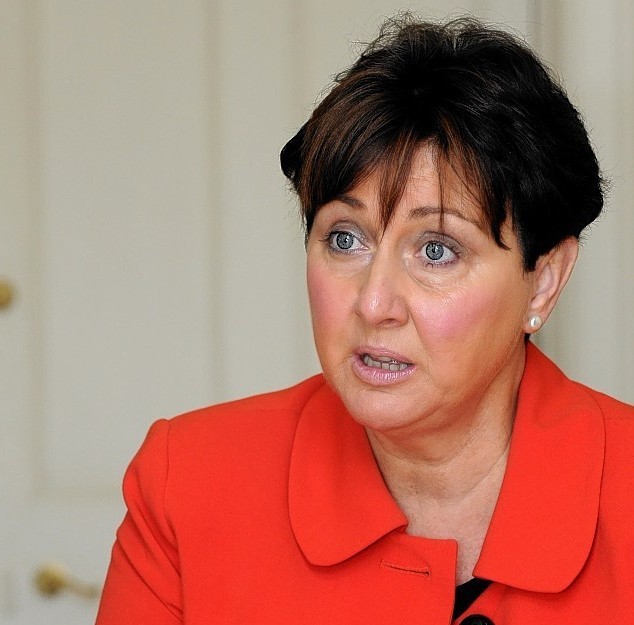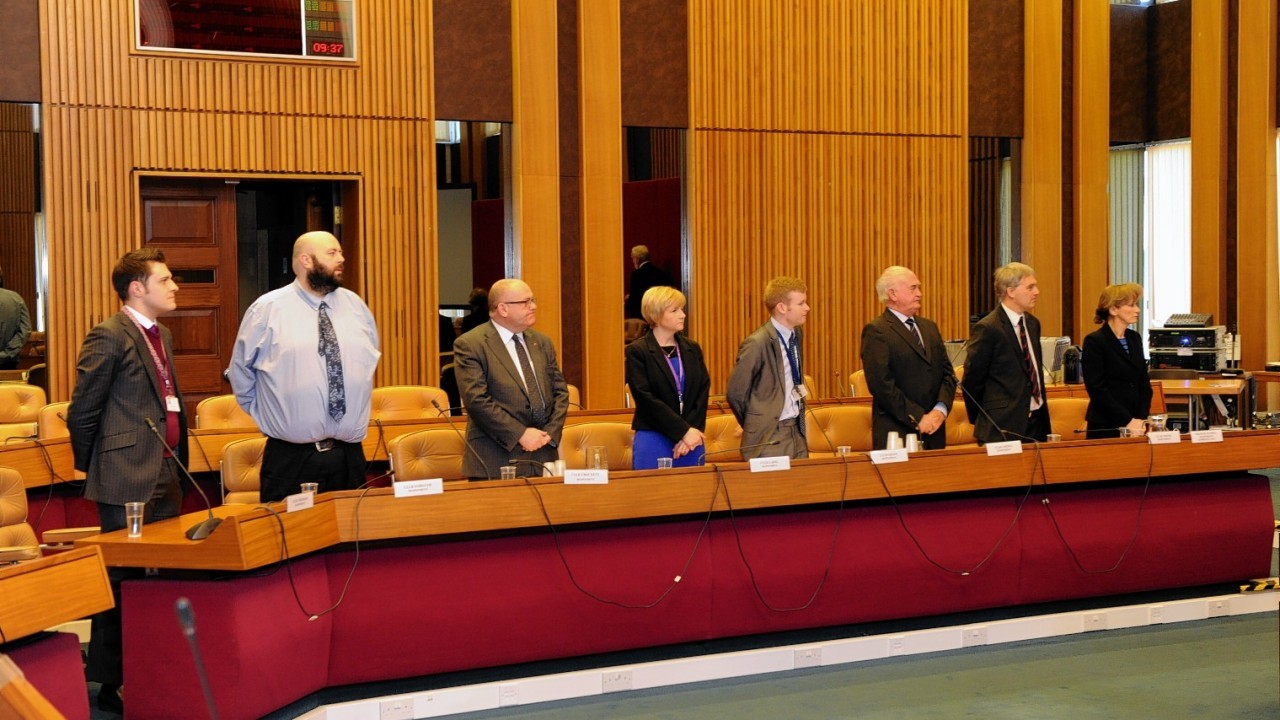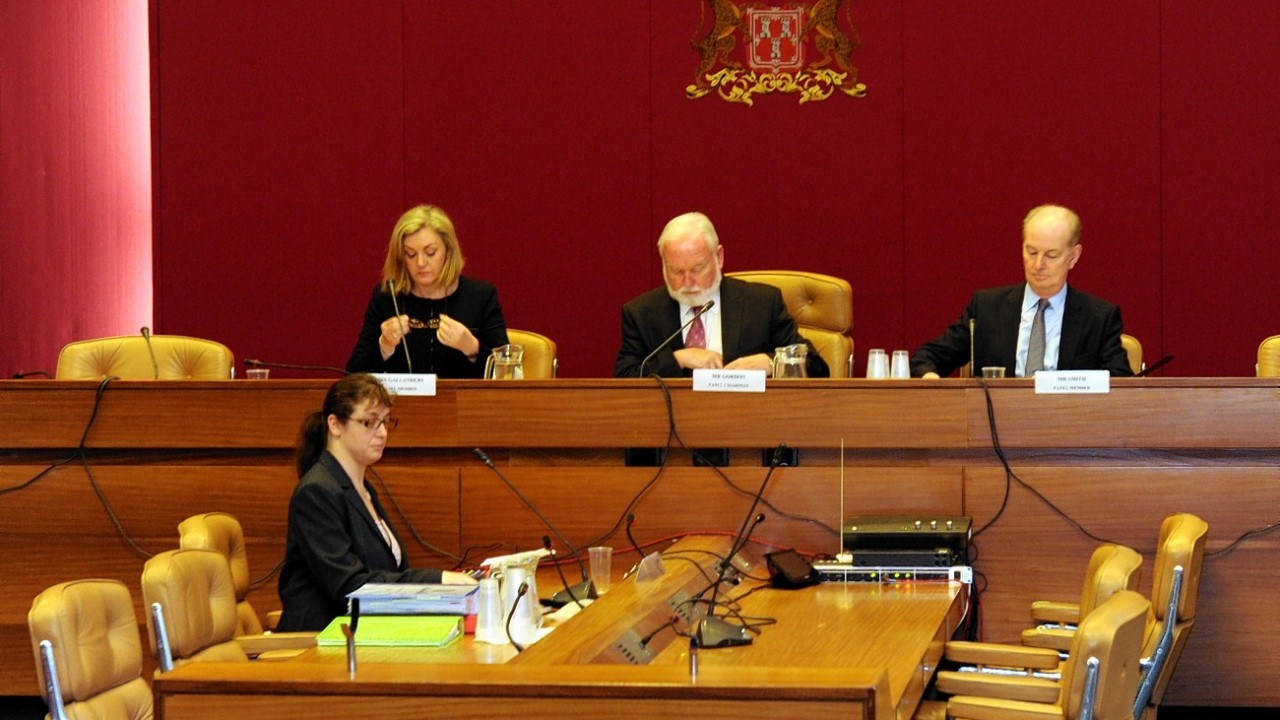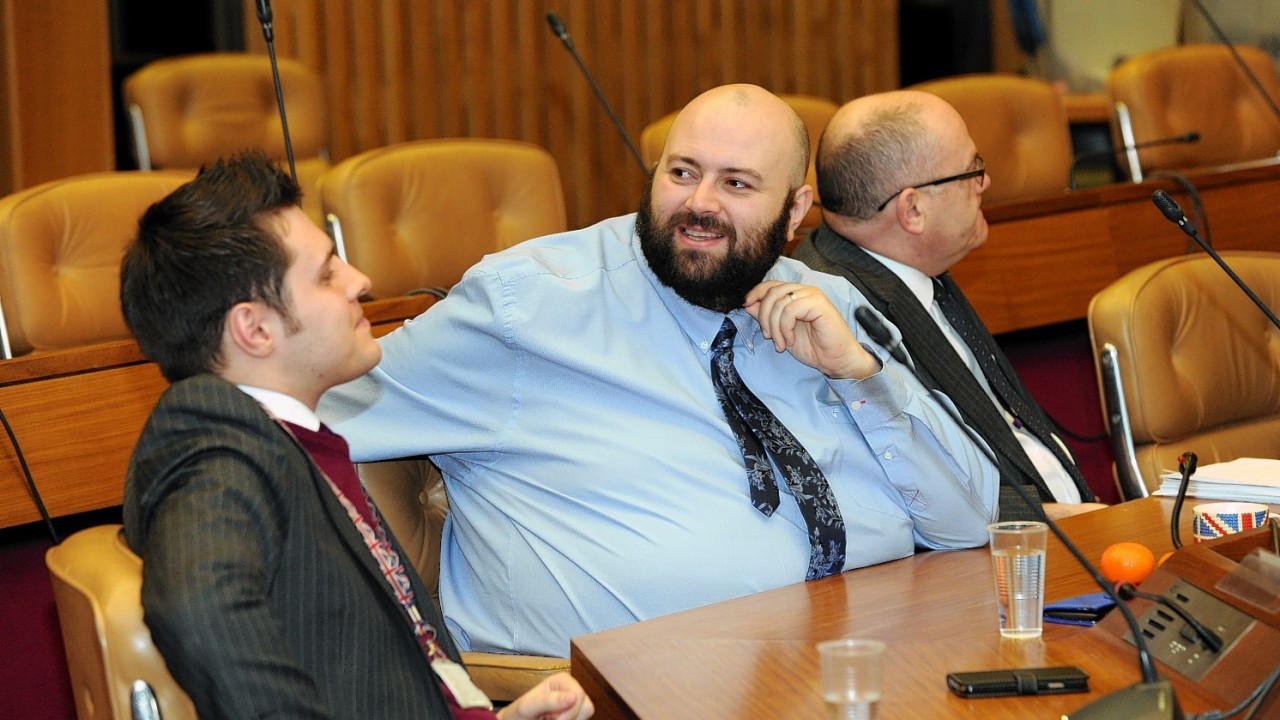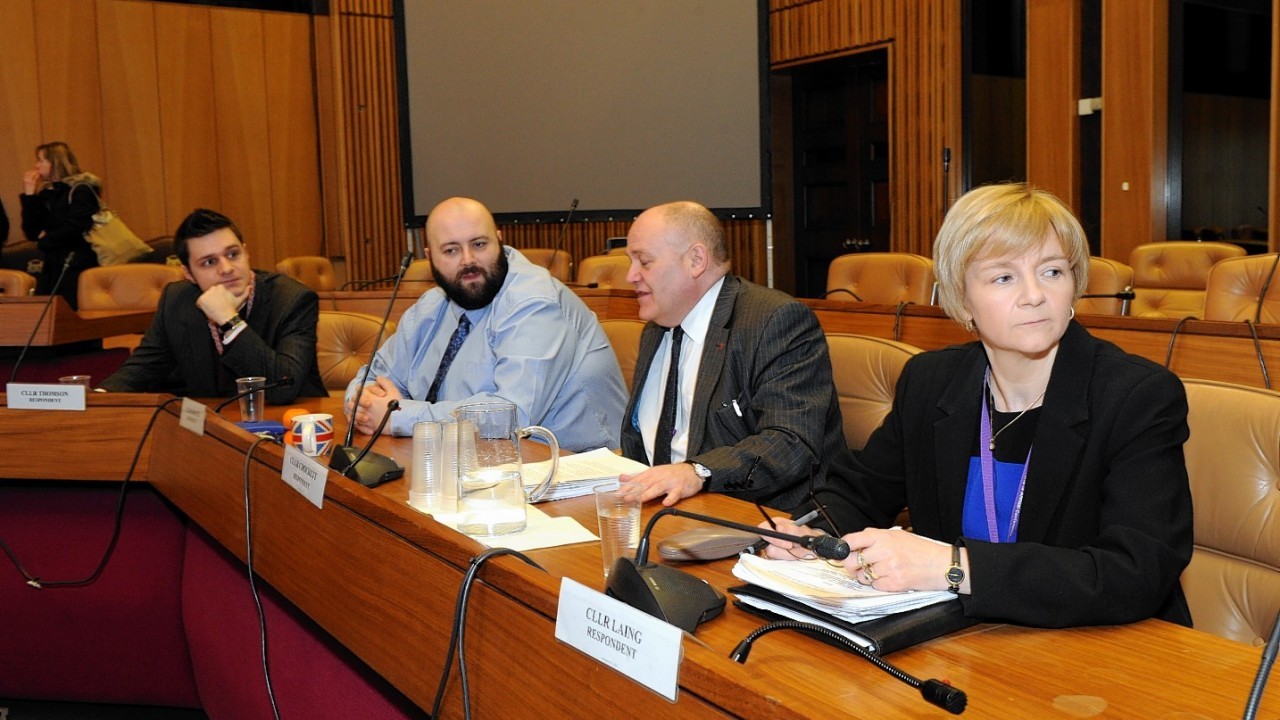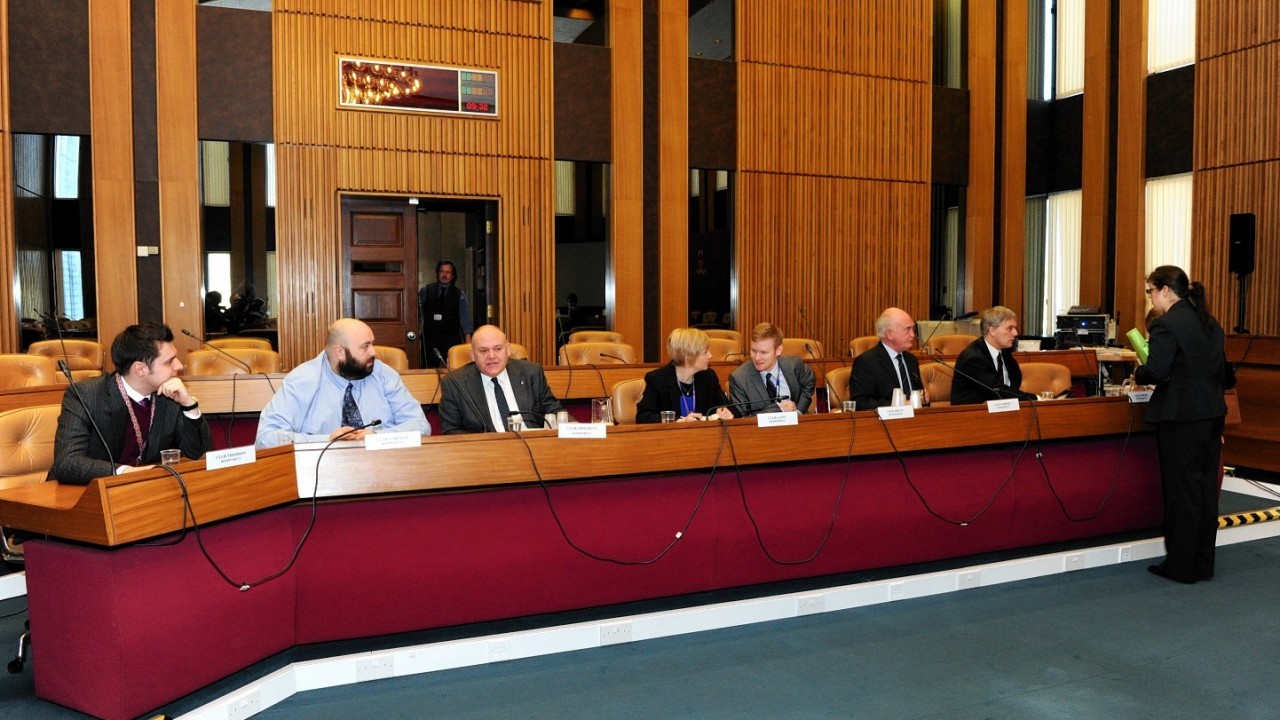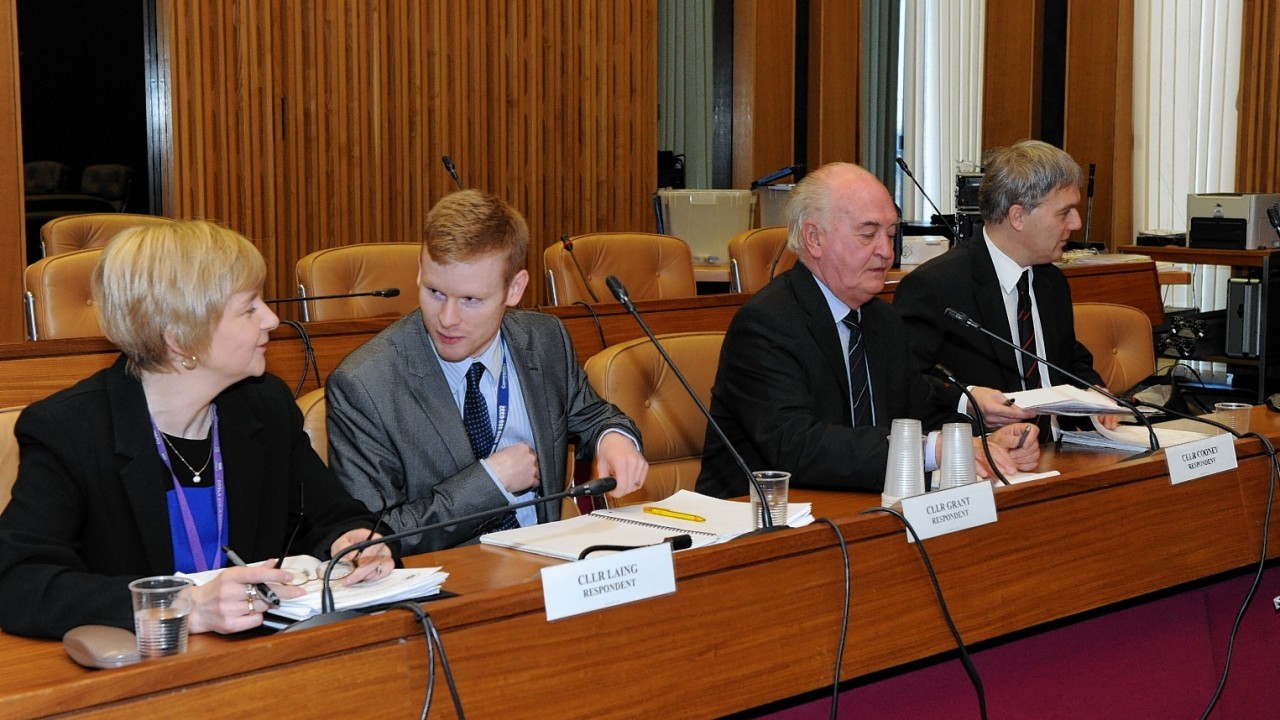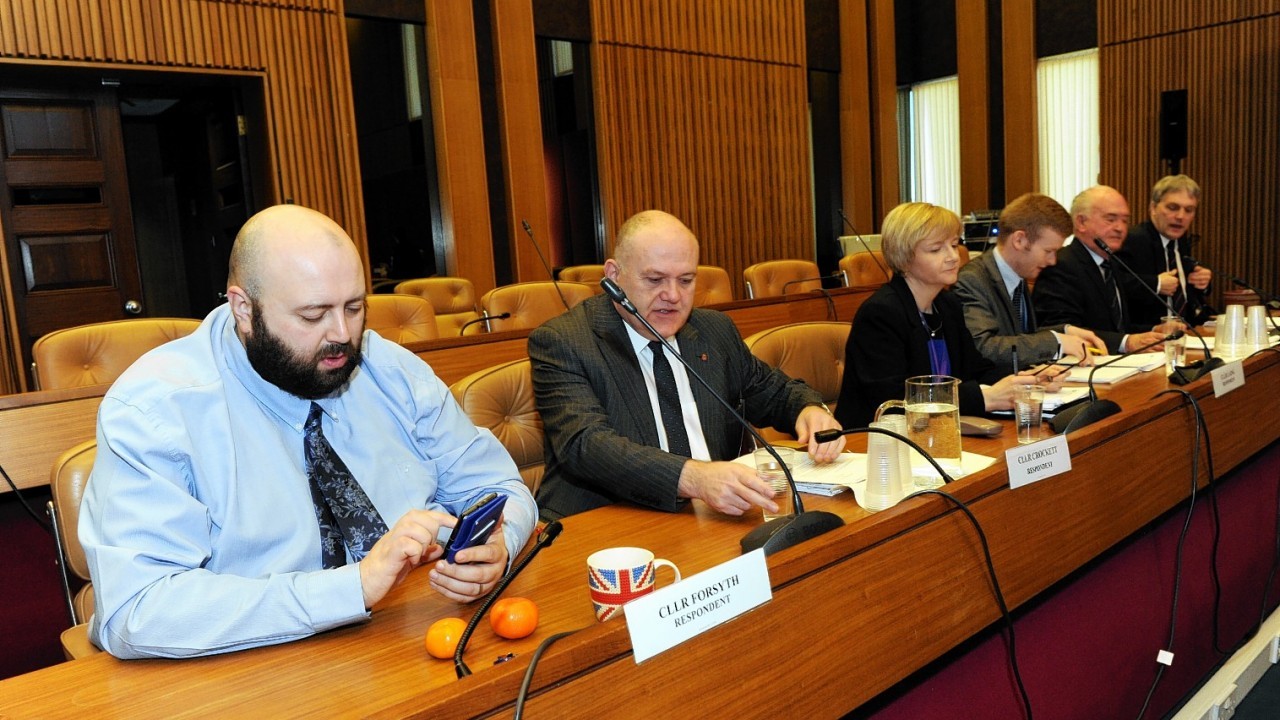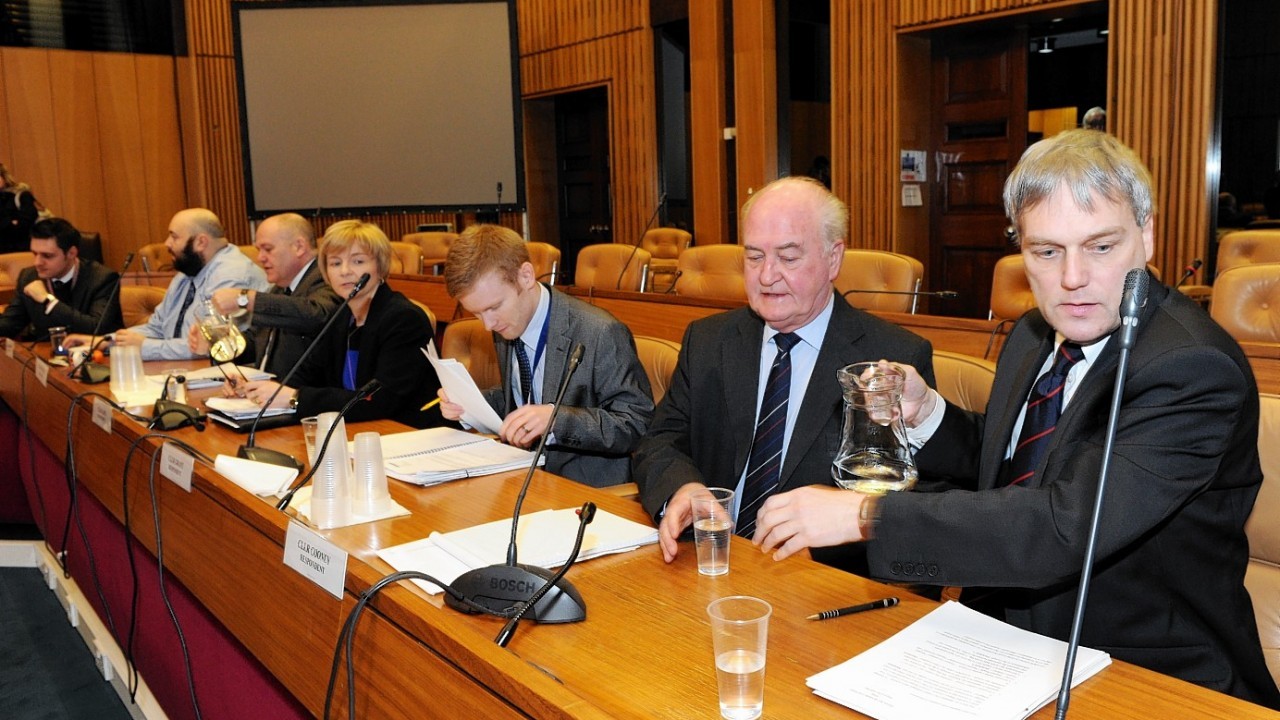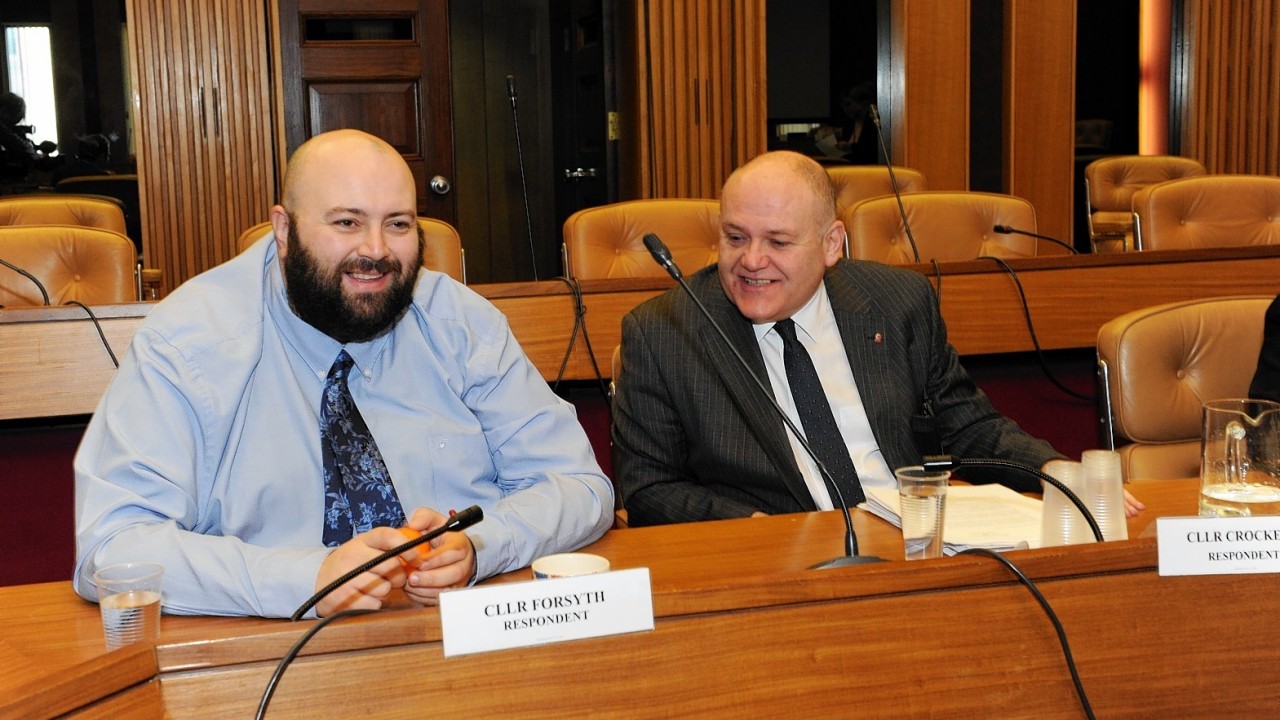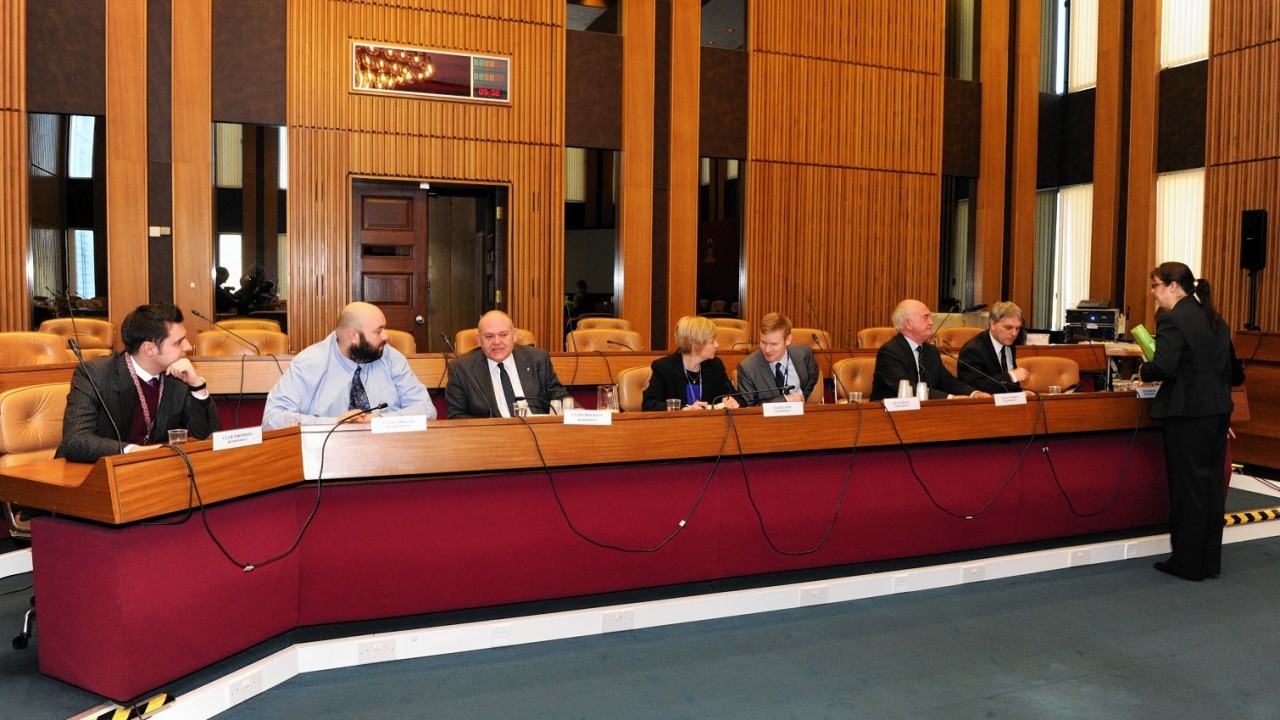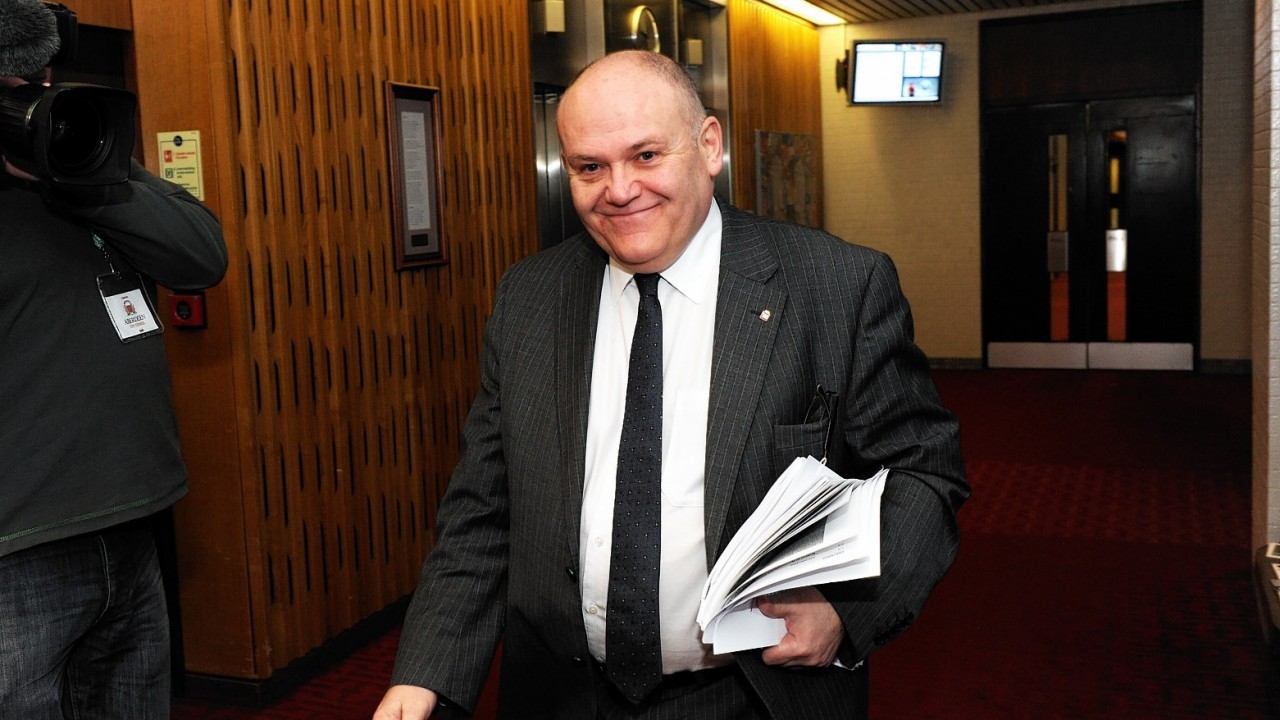The former chief executive of Aberdeen City Council was yesterday accused of being “disrespectful” to the Standards Commission for Scotland after failing to give evidence to a public hearing.
Valerie Watts was asked to appear as a witness in the case involving seven senior councillors accused of using council facilities for political ends in the build-up to last year’s independence referendum.
Her absence prompted the adjournment of the entire process – potentially for several months.
As the hearing was getting underway, Frances Randle, a solicitor from Steel and Shamash representing five Labour councillors, objected to plans to allow Mrs Watts to give evidence via Skype.
The local authority’s former top official left Aberdeen in March last year – just weeks after the pro-Union letters were issued – and is now employed as head of the health and social care board in Northern Ireland.
The hearing adjourned to allow the panel time to consider how to proceed.
Panel chairman and convener of the Standards Commission, Ian Gordon, said: “I find it disappointing in terms of public service, that a senior public servant has declined to come in person.”
After the morning session, Ranald Macpherson, representing the Commissioner for Ethical Standards in Public Life, said Mrs Watts had been called away “to a meeting with the permanent secretary”.
As a result, Mr Macpherson said, she would be “unable” to give evidence.
Mr Gordon said: “We find that this is extremely disrespectful that another matter takes precedence over this when it had been decided (she would give evidence).
“I think it is disrespectful to the respondents, and in terms of the Commissioner’s role as well, we find it extremely disrespectful, bordering on contempt, of the formality of this hearing.”
Mrs Watts was the second of two witnesses being called by the Commissioner, with the other having given her evidence in the morning session.
Mrs Randle asked that the date for the resumption of the hearing avoid the “purdah” period for the general election, which should be the six weeks prior to May 7.
That means it is highly unlikely that the hearing will re-convene before the summer. A date will be set by the Standards Commission.
